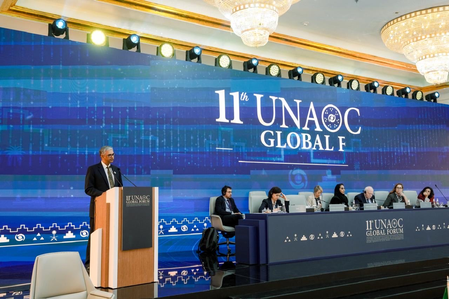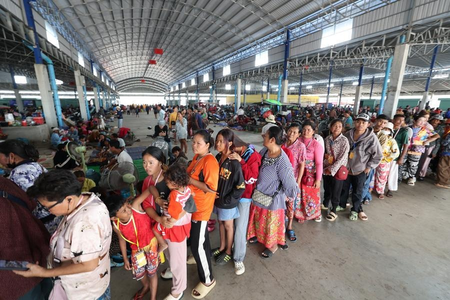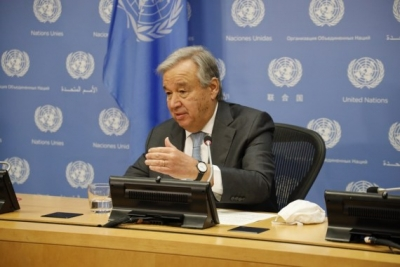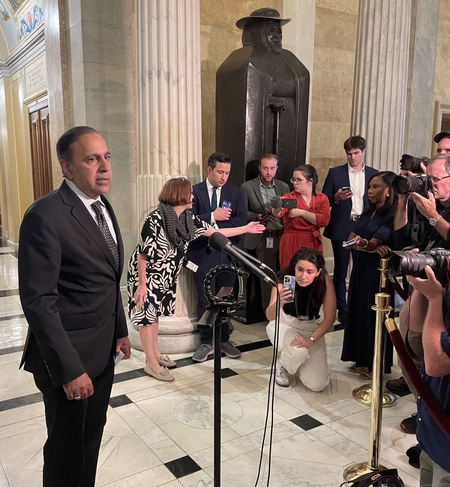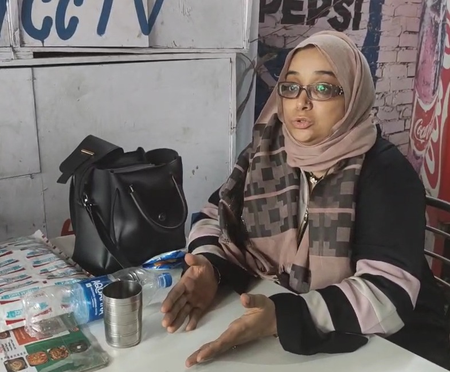
Attari, May 1 (IANS) Following the deadly Pahalgam terror attack, a heartbreaking story of separation unfolded at the Attari-Wagah border, where two sisters, who had travelled to India to visit their ailing mother, found themselves stuck at the border due to a missed deadline and a passport dispute. Their journey back to Pakistan has been halted, leaving the children in distress as they struggle with bureaucratic red tape.
Muhammad Shariq, a resident of Uttar Pradesh, had reached the border with his two sisters, Nabila Raj and Sharmin Irfan, both of whom have been married in Pakistan.
They had come to India on a 45-day visa to visit their sick mother, but now they are unable to return to Pakistan.
Speaking to IANS, Shariq said, “Their passports are Indian, but they are married in Pakistan, and their children live there. They are being stopped from crossing the border because of this passport issue.”
The sisters, visibly anxious, explained how their situation had taken a turn for the worse.
Nabila said, “I am originally from Delhi, but I got married 18 years ago in Karachi. I have four children. Two are in Pakistan, and two are here with me in India. My eldest son was paralysed after an accident, and he has been in that condition for two years now. He needs me terribly. Every day he asks, ‘Mamma, when will you return?’ He’s not well, and it breaks my heart to hear him cry. But now, the Pakistani government is not allowing us to return, and it’s causing so much grief to my children.”
She continued, “We didn’t know about the deadline of April 30. The Pakistani High Commission called us and told us that April 30 was the last day to cross the border. We rushed to the border, hoping to make it in time. But we’ve been here since April 30 morning and we still haven’t been allowed to cross.”
Her sister Sharmin added, “We did not know that the deadline for crossing the border was on April 30. Had we known, we would have made sure to arrive earlier. But now, here we are, unable to go back. Our children are waiting for us, and we’re just caught in this bureaucratic mess.”
The situation at the border is tense and both Nabila and Sharmin’s hopes of reuniting with their children are hanging by a thread.
There are many families like theirs, separated by the complexities of visas, passports and missed deadlines.
On one side of the border, children wait in Pakistan for their mothers, who are stuck in India. On the other side, there are mothers who are waiting for their children, separated by the rigid lines drawn by governments of both nations. The emotional toll on these families is immense, with little hope of reconciliation.
In the midst of all this, people on both sides of the border are left with feelings of helplessness and frustration. The walls that separate India and Pakistan have done more than just divide nations, they have torn families apart, leaving them yearning for reunification.
Nabila summed up the experience with a heavy heart: “All we want is to be with our children in Pakistan. We are not asking for anything more. We just want to go back to Pakistan where our children are waiting for us.”
This incident serves as a poignant reminder of the human cost of political boundaries. While governments continue to draw lines on maps, it’s ordinary families that bear the brunt, unable to cross these lines to be with their loved ones.
–IANS
jk/rad

